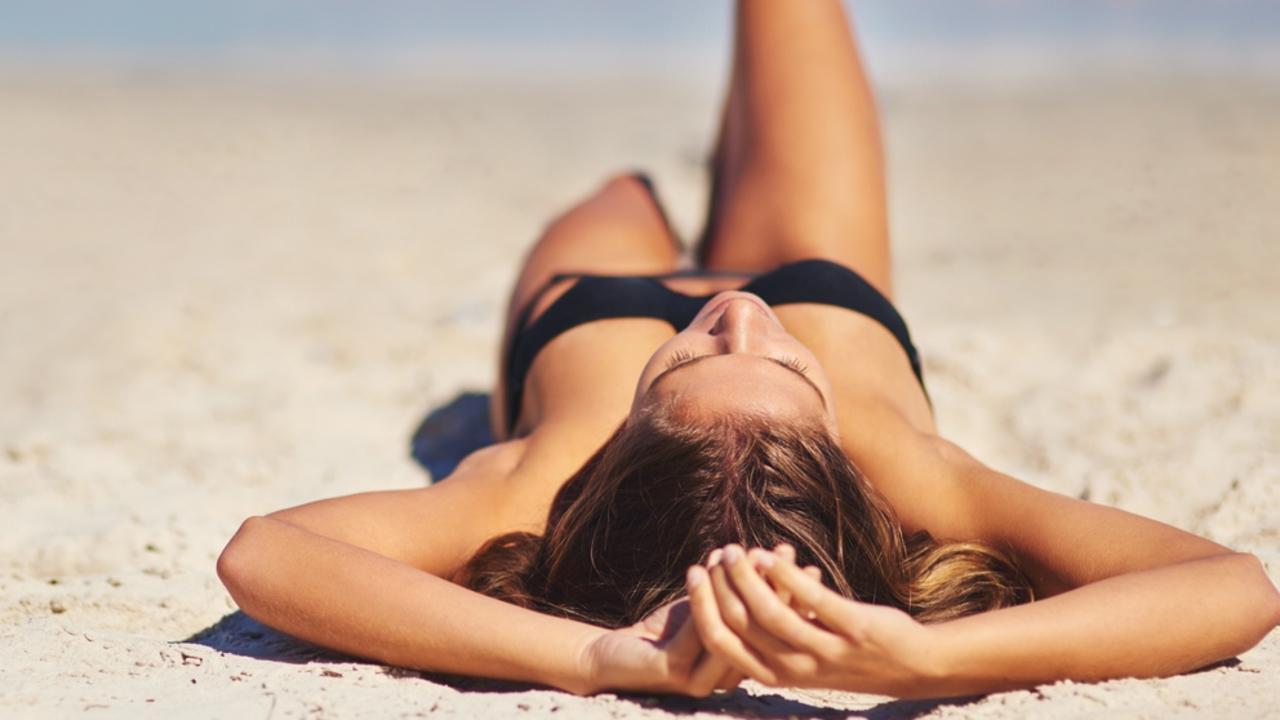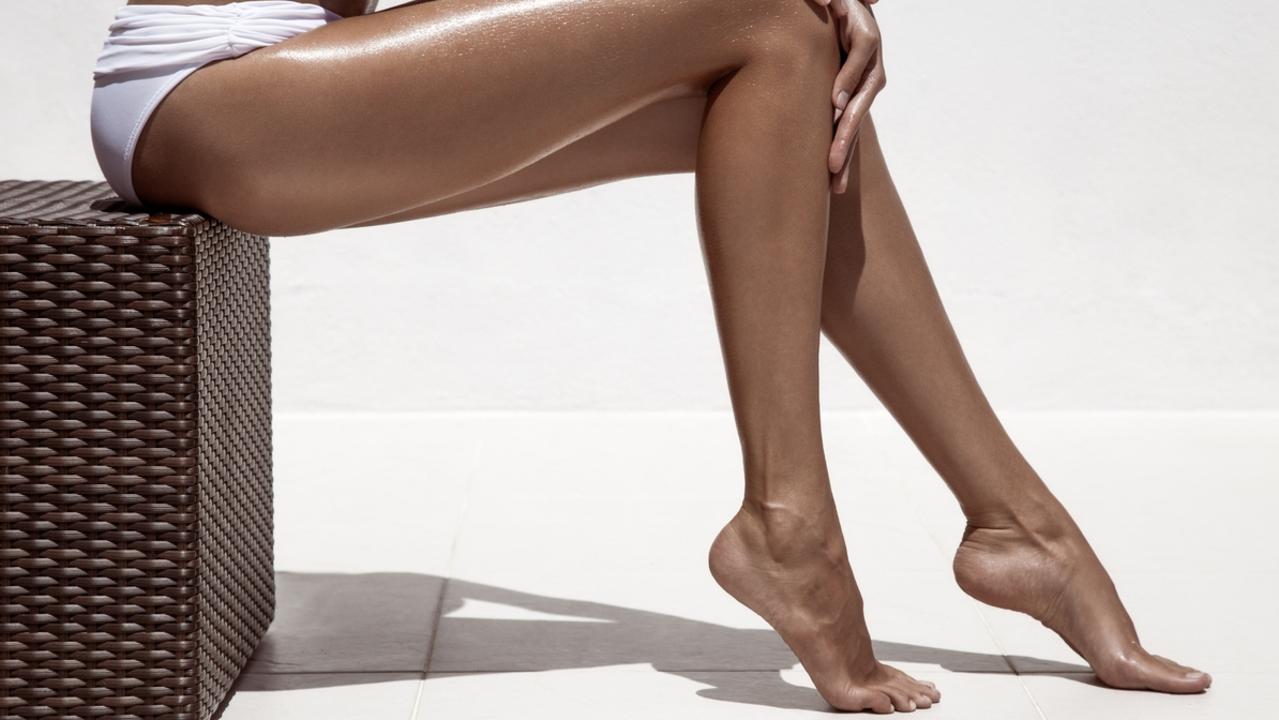Dr Zac Turner on fake tan safety
It’s definitely safer to fake a tan rather than sunbake, but there’s a strange trend in fake tanning that a Sydney doctor has warned against.
Welcome to Ask Doctor Zac, a weekly column from news.com.au. This week, Dr Zac Turner explains how to be summer safe.
Question: Hi Dr Zac, I don’t want to wait for summer to get a tan, I want to enter summer with a tan. The only problem is that I live in Melbourne! For obvious reasons, I haven’t spent much time outside as of late. I’m literally a ghost!
I’m interested in purchasing some fake tan, and I did a bit of research. I can’t determine whether they are healthy or not. Can you settle it for me? Surely there’s something wrong about changing the colour of your skin. I’ve even heard that some people have been snorting a substance to get a fake tan – is that an actual thing!? – Rachel, Melbourne
Answer: Hi Rachel, this seemingly innocuous question about fake tan raises some pertinent points about Australia’s relationship with tanning as a beauty standard. I really encourage you to reconsider how you define your own beauty, and really step back and think about what you are doing to your body in the pursuit of good looks.
Do you remember those old government skin cancer ads? “There’s nothing healthy about a tan.” Despite all the associations with beauty, a tan is a sign of skin cell damage. It increases the risk of skin cancer and accelerated skin ageing.
As I’ve stated in a previous column, I like to tell my patients that if you persist with tanning, soon enough you will look like a leather couch.

I understand it’s sometimes difficult to be part of a revolution that stands up to societal norms, so I appreciate that you want to feel beautiful. So with that, I recommend you live by the motto, ‘fake it, don’t bake it.’ Using fake tan is considerably safer than lying in the sun and exposing yourself to harmful UV rays.
The World Health Organisation has proven UV radiation to be a carcinogen, and found 90 per cent of non-melanoma skin cancers and 86 per cent of melanomas are linked to UV rays. This is very similar to the 80-90 per cent of lung cancer being directly linked to smoking. Unfortunately, society has a completely different attitude towards tanning versus puffing on a cigarette.
How fake tan works
OK, now that my tanning lecture is over, let’s go through how exactly fake tan works.
Most fake tan you find in the chemist and supermarket aisle contains the additive DHA, or dihydroxyacetone. This is the active ingredient that darkens the top layer of your skin. This layer of skin is made up of dead cells, which is why the fake tan only lasts between a week to ten days before your skin sheds.
I, and many other doctors and medical researchers, consider DHA to be safe for topical application to the skin. The key word there is topical, as in applied to the skin. I’m not sure where you were looking on the internet but I can’t stress this enough: do not snort fake tan.
You might’ve come across ‘tan accelerators’ in your research. These come in tablet, spray or injection form and contain the chemicals psoralen and tyrosine which have been suggested to contribute to the production of melanin.

What is melanotan?
The biggest offender in the bogey tanning underworld is melanotan. Everyone has a friend of a friend who bought some off the internet and had it shipped halfway across the world. It’s banned in Australia by the Therapeutic Goods Administration (TGA) unless you have a prescription.
It stimulates production of melanin and this pigment is responsible for skin colour and is produced by melanocytes. We all have the same melanocytes in our skin which produce melanin and this is what is increased through these medications. It is the sun though that stimulates these cells to release the melanin, thus giving us our tan.
There is lots of research being done on these medications so please remember to consult a doctor that has some experience or otherwise steer clear as they can result in patchy tans and increased pigmentation, not to mention other unwanted systemic effects.
The problem is that we don’t know enough about it yet, which means it hasn’t passed any of the TGA’s rigorous tests. I never recommend self-injecting yourself with anything that is banned, and shipped halfway across the world. If you know anyone using melanotan, please ask them to dispose of it immediately.
Rachel, stick to the tan in the bottle and do not go for the fad products that will end up just as harmful as UV rays. Don’t forget, fake it, don’t bake it.
Dr Zac Turner has a Bachelor of Medicine and Bachelor of Surgery from the University of Sydney. He is both a medical practitioner and a co-owner of telehealth service, Concierge Doctors. He was also a registered nurse and is also a qualified and experienced biomedical scientist along with being a PhD Candidate in Biomedical Engineering.






